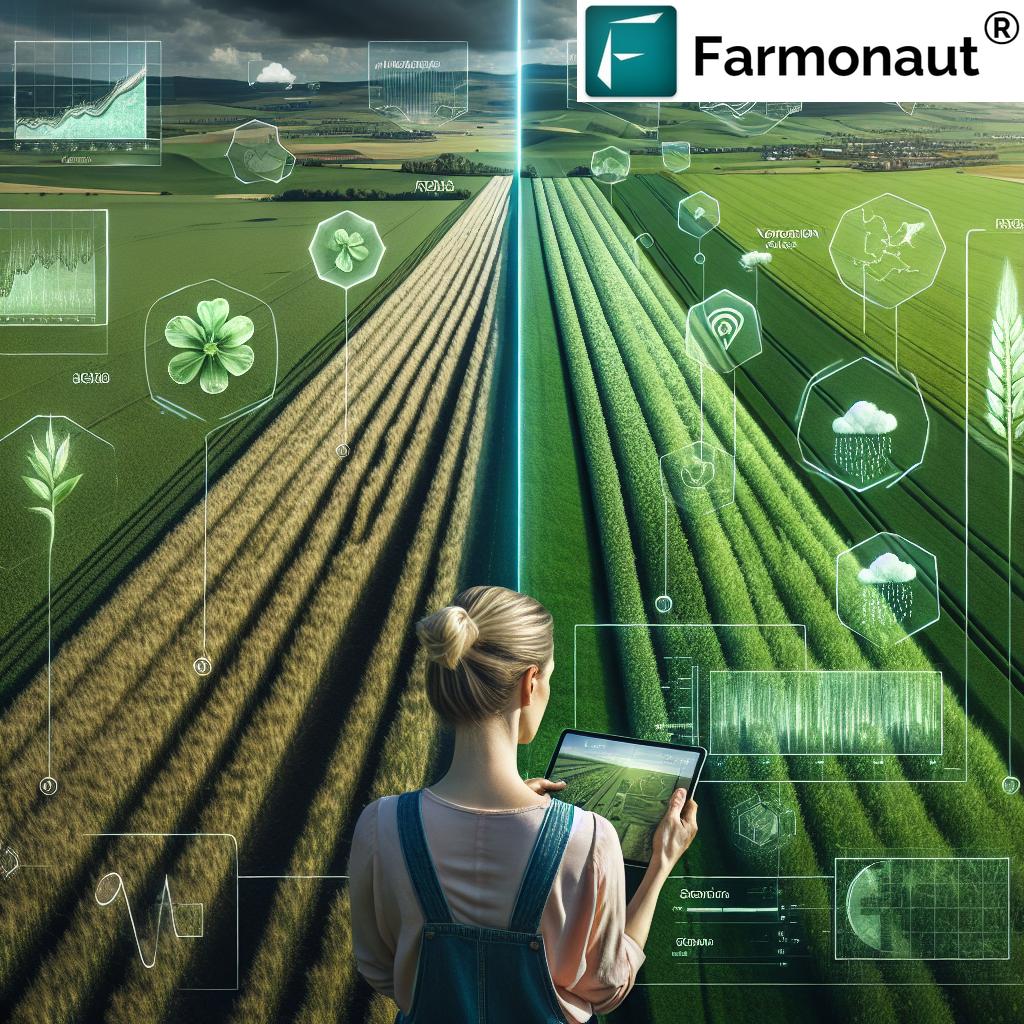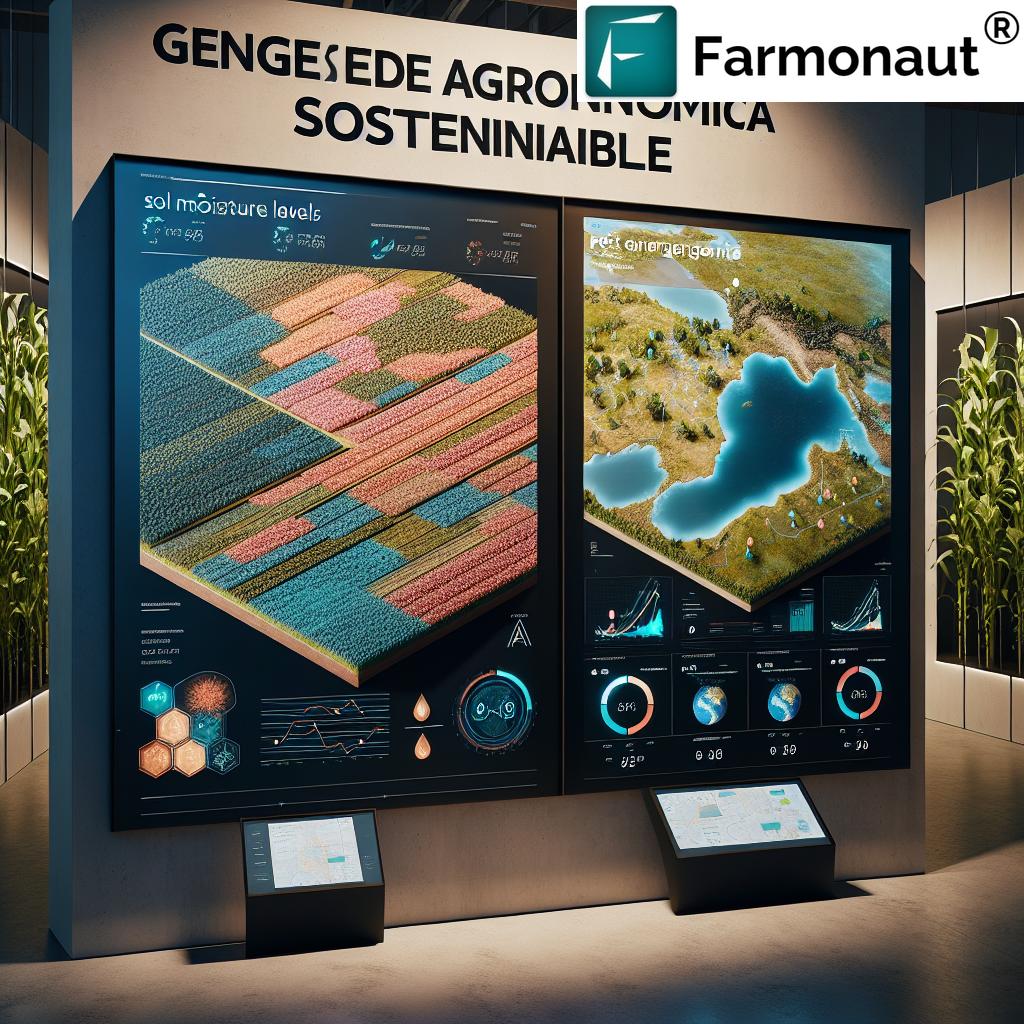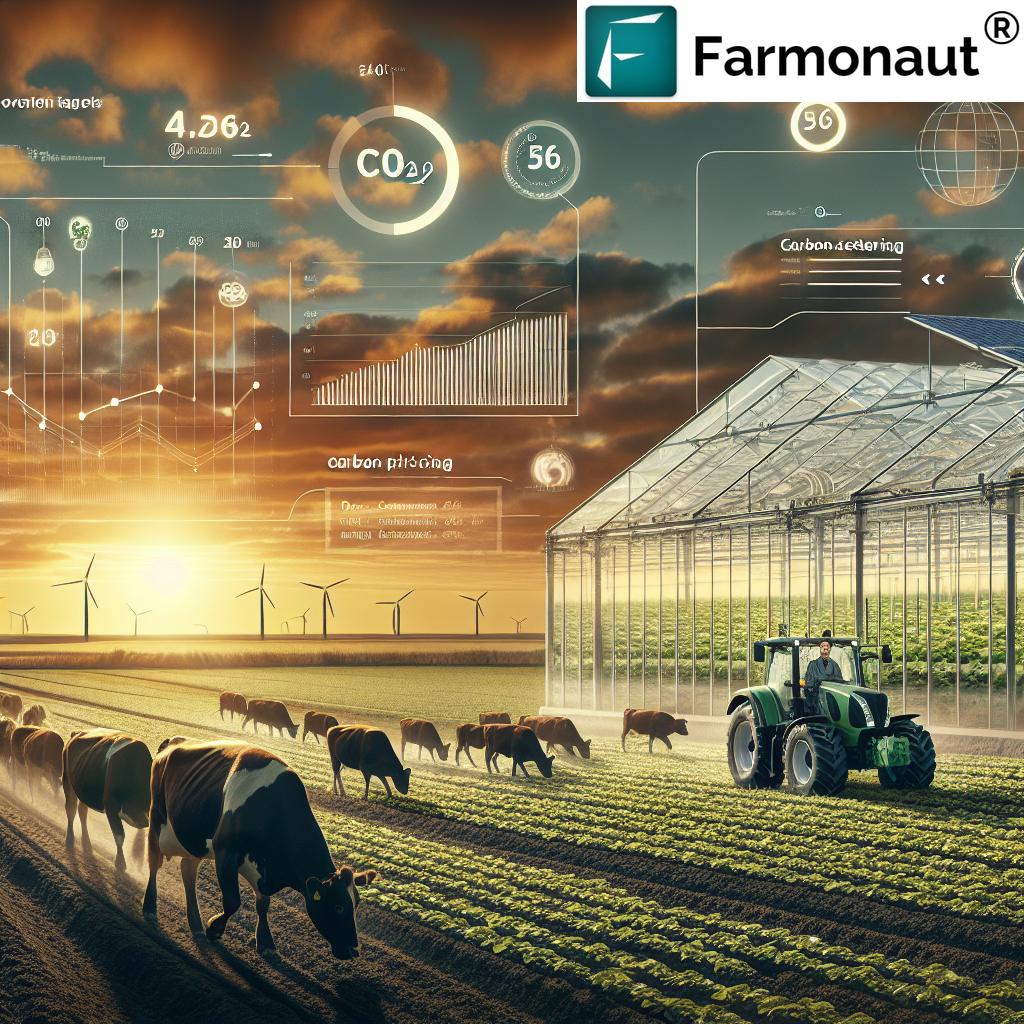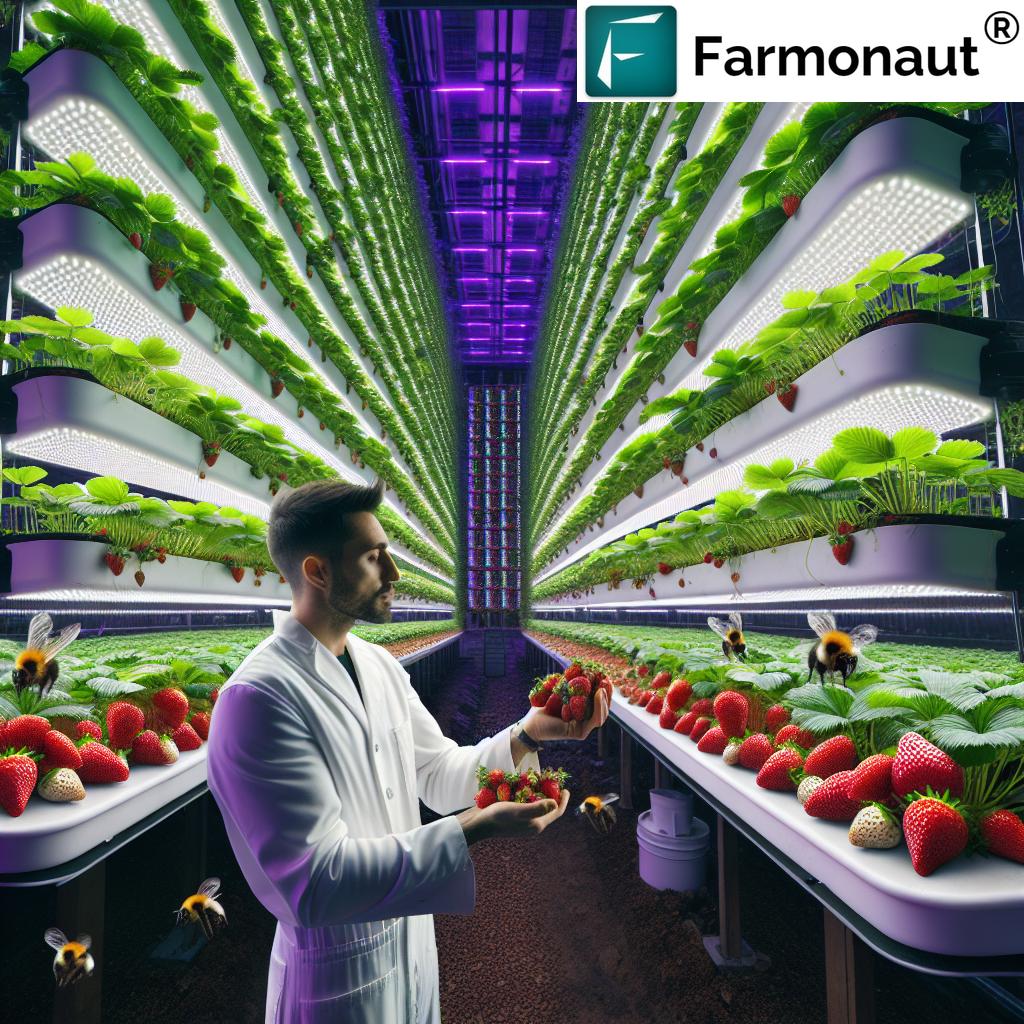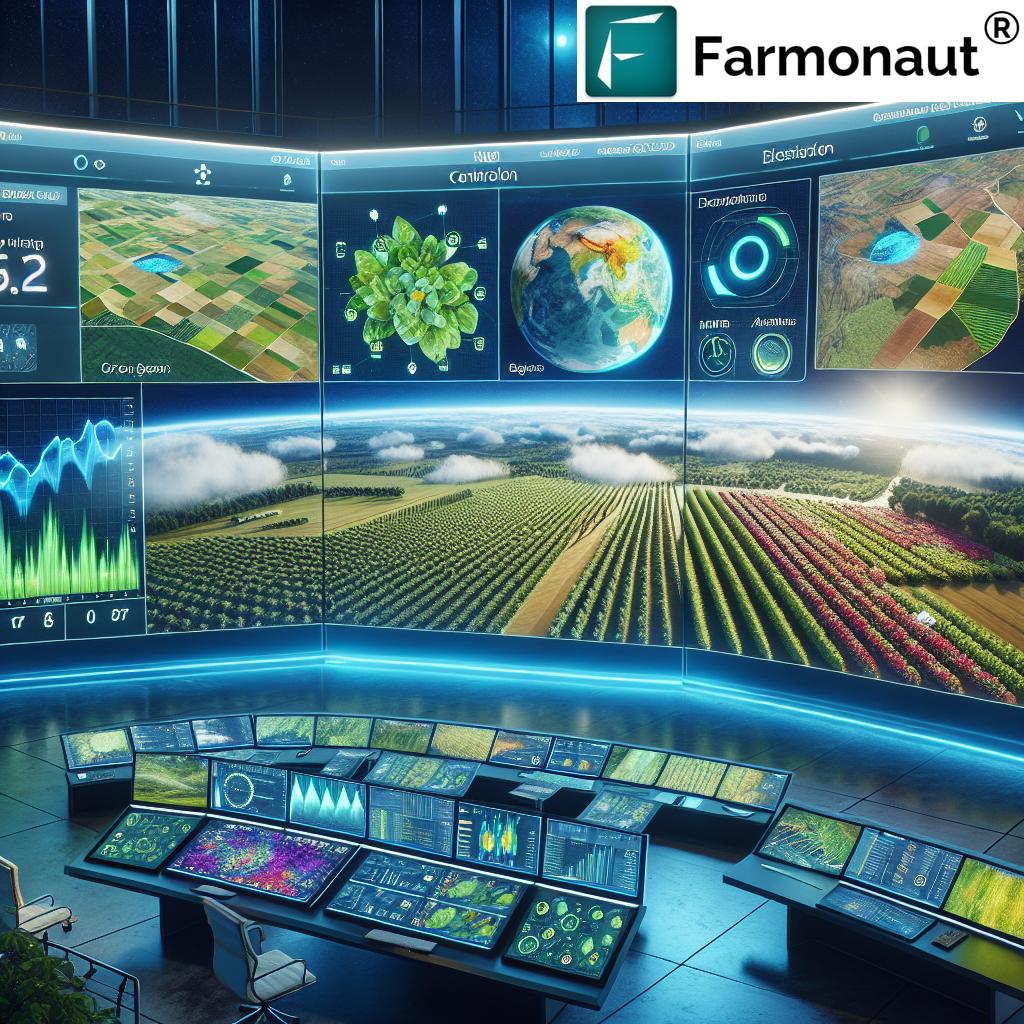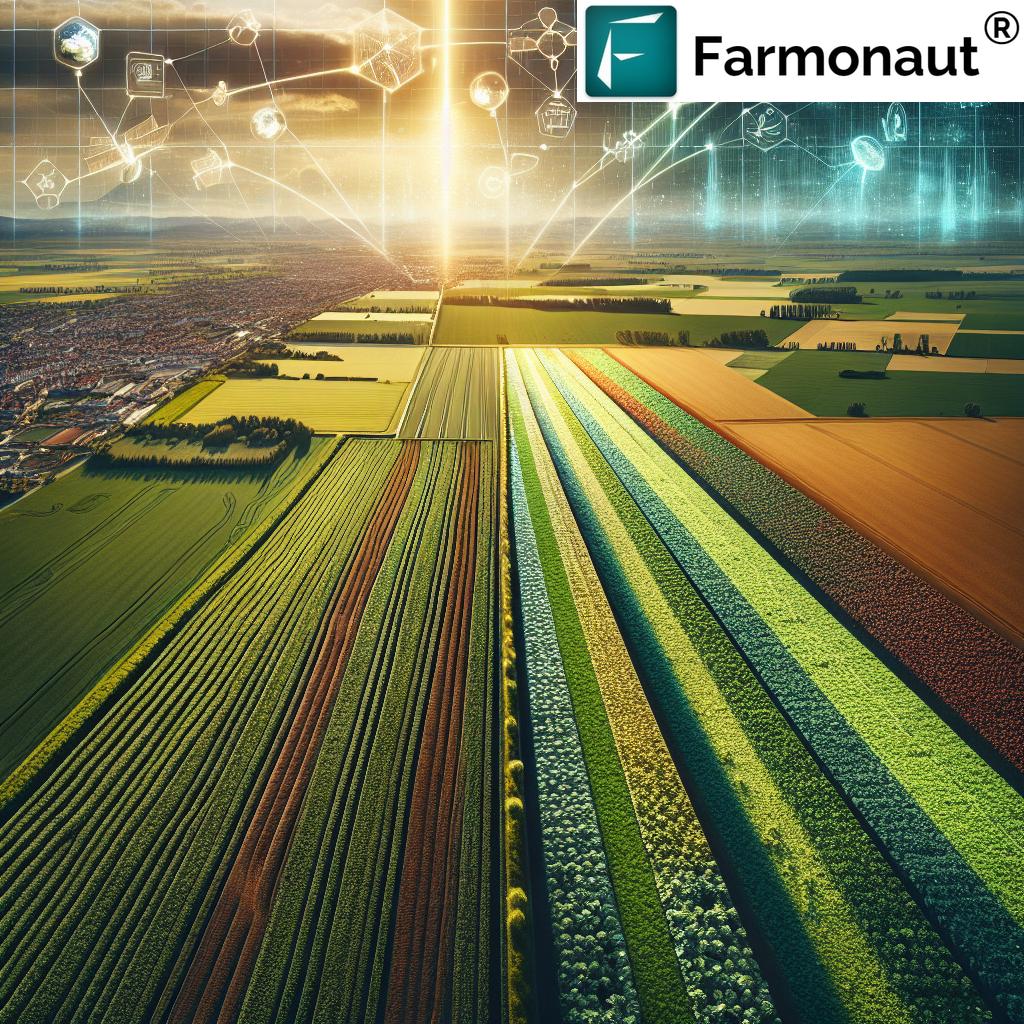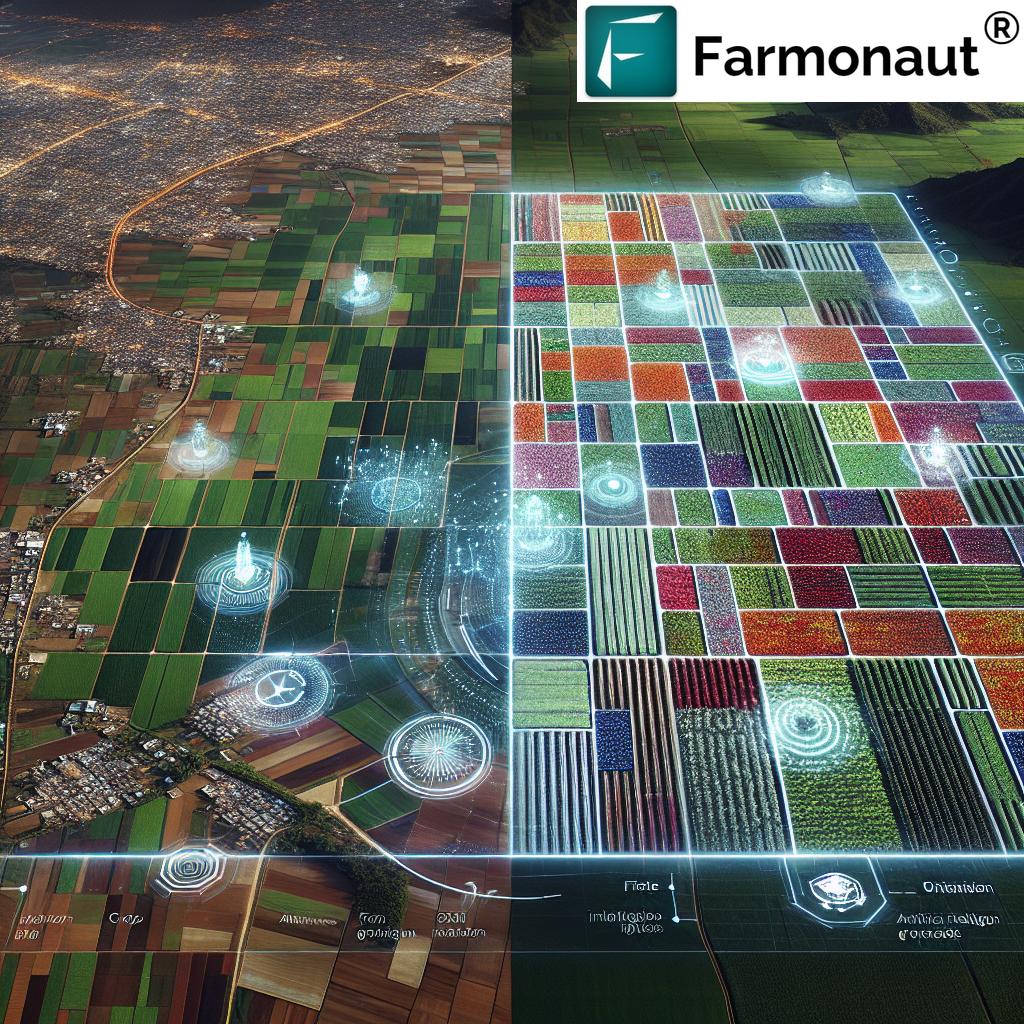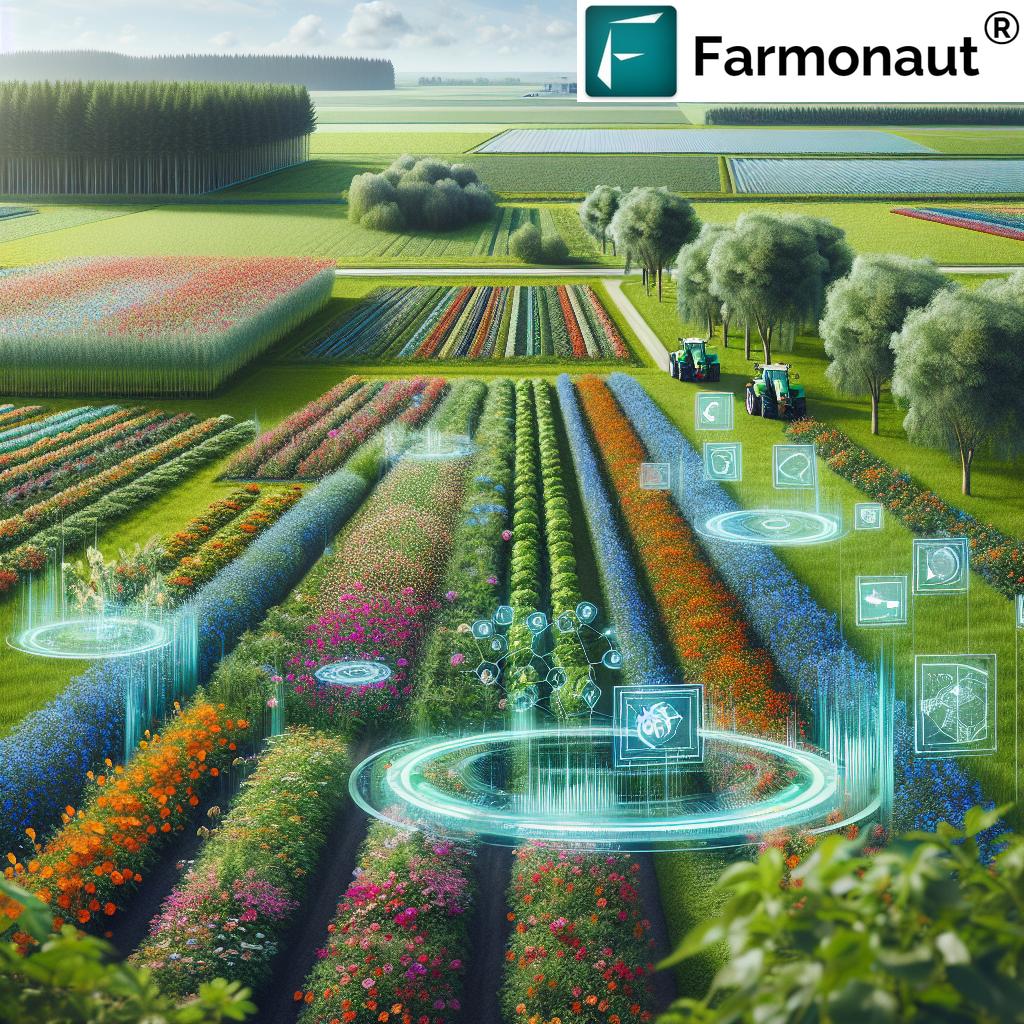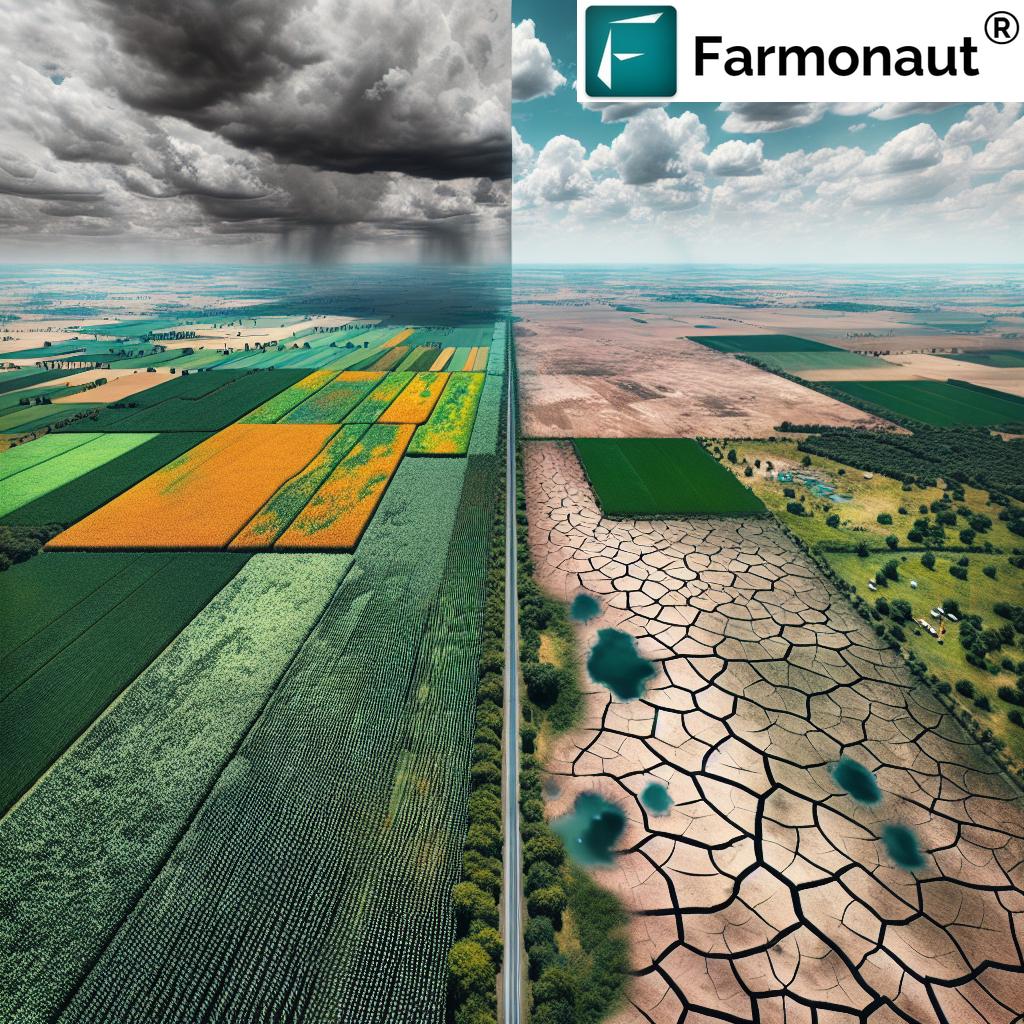Maaleipä Challenge: Finland’s Innovative Approach to Sustainable Agriculture and Eco-Friendly Baking
“The Maaleipä Challenge in Finland unites bakers, farmers, and experts to create unique breads using eco-friendly ingredients and methods.”
In the land of a thousand lakes, Finland is once again proving its commitment to innovation and sustainability. This time, it’s through the lens of one of humanity’s oldest staples: bread. The Maaleipä Challenge, a groundbreaking initiative, is revolutionizing sustainable agriculture practices and organic grain cultivation in this Nordic nation. As we delve into this fascinating project, we’ll explore how Finland is addressing climate change and its impact on food production through the simple act of baking bread.
Understanding the Maaleipä Challenge
The Maaleipä Challenge, initiated by artists Daniel Fernández Pascual and Alon Schwabe of Cooking Sections for IHME Helsinki, is more than just a baking competition. It’s a nationwide movement towards more sustainable land use, grain cultivation, and food production practices. The challenge’s name, “Maaleipä,” translating to “bread for the soil,” encapsulates its core philosophy: nurturing the earth through mindful food production.
Running from April 15 to September 1, 2024, this innovative challenge will culminate in a festive celebration of fourteen unique Maaleipä breads at the Maaleipä Feast in Helsinki on September 21, 2024. But what makes this challenge truly special is its holistic approach to sustainability.
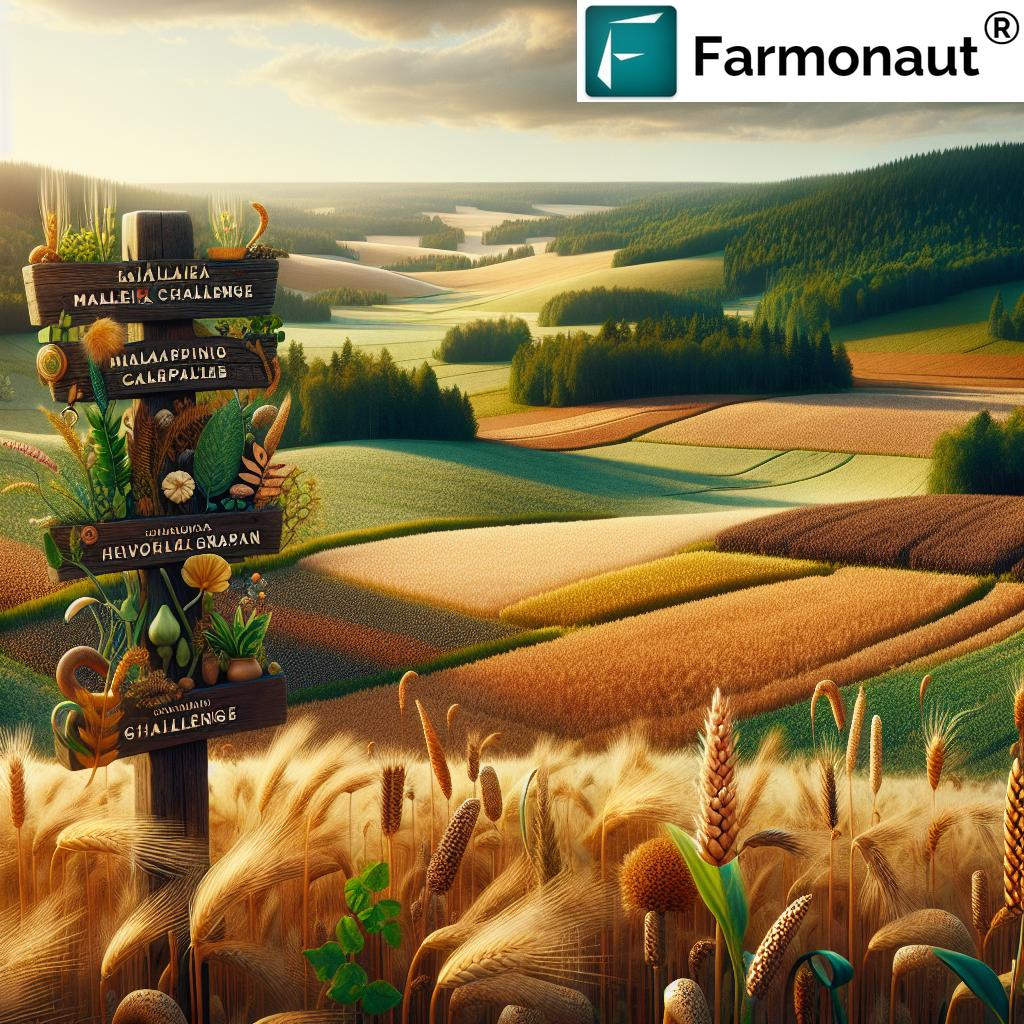
The Cultural Context: Finland’s Bread Tradition
To truly appreciate the significance of the Maaleipä Challenge, we must first understand Finland’s rich bread culture. Finnish breads are as diverse as the country’s landscapes, ranging from dark rye loaves to sweet cardamom buns. This variety reflects not only regional traditions but also the adaptability of Finnish bakers to different grains and ingredients.
However, like many countries, Finland has not been immune to the negative effects of monoculture farming and intensive agricultural practices. These methods have led to depleted soils, polluted waters, and a decline in the nutritional quality of food. The Maaleipä Challenge aims to address these issues by encouraging bakers to select ingredients that promote environmental well-being.
The Challenge: Bridging Tradition and Innovation
The Maaleipä Challenge attracted a diverse group of bakers, farmers, and experts in sustainable agriculture. Their goal? To envision future practices in land use and grain cultivation while creating delicious, eco-friendly breads. This unique blend of culinary art and environmental science is at the heart of the challenge.
Participants were encouraged to incorporate innovative and eco-friendly ingredients into their recipes. These included:
- Sourdough starters
- Organic landrace grains
- Porridge from the previous day
- Root vegetables
- Unconventional options like pine bark flour
- Invasive plants
Each recipe was designed with a dual purpose: to enhance soil health and to improve the interconnected well-being of land, sea, and human health. This approach demonstrates how food production can be a tool for environmental stewardship.
Explore sustainable farming practices with Farmonaut’s satellite-based solutions. Try our web app for precision agriculture insights.
The Impact of Climate Change on Food Production
The Maaleipä Challenge is not just about creating innovative bread recipes; it’s a response to the pressing issue of climate change and its impact on food production. As global temperatures rise and weather patterns become more unpredictable, traditional farming methods are increasingly challenged.
In Finland, as in many parts of the world, farmers are experiencing:
- Shifting growing seasons
- Increased frequency of extreme weather events
- Changes in pest and disease patterns
- Alterations in soil composition and fertility
These changes necessitate a reevaluation of agricultural practices, pushing us towards more resilient and sustainable methods. The Maaleipä Challenge serves as a platform for exploring these new approaches in the context of one of our most basic foods: bread.
Agroecological Farming Methods: A Key Component
Central to the Maaleipä Challenge is the promotion of agroecological farming methods. These practices aim to mimic natural ecosystems, creating sustainable agricultural systems that work in harmony with nature. Some key agroecological principles incorporated in the challenge include:
- Crop diversification
- Soil conservation techniques
- Natural pest management
- Water conservation
- Use of local and heritage varieties
By encouraging these practices, the challenge is not only improving the quality of ingredients used in bread-making but also contributing to the overall health of Finland’s agricultural landscapes.
Leverage Farmonaut’s AI-powered advisory system for sustainable farming. Download our Android app or iOS app today.
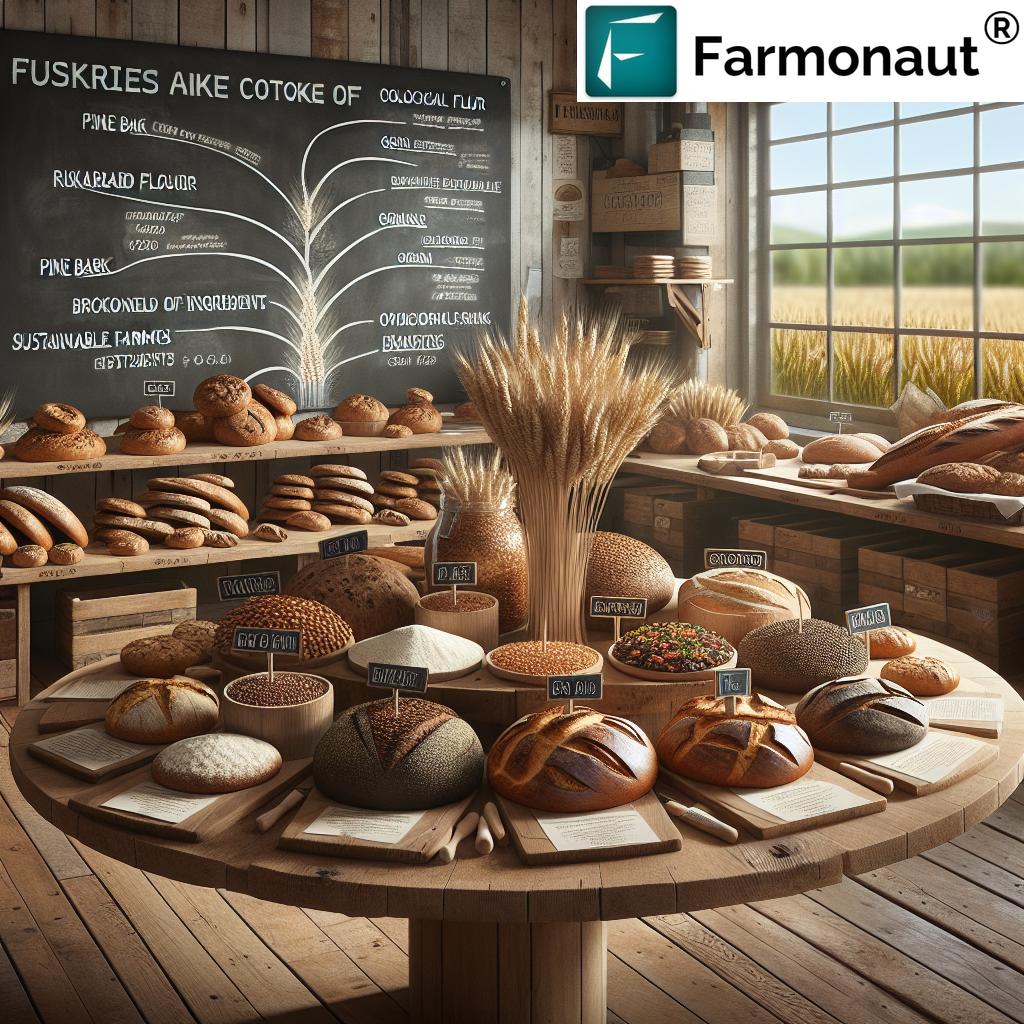
Eco-Friendly Baking Ingredients: A Closer Look
“Finland’s innovative bread challenge explores unconventional ingredients like pine bark flour to improve soil health and combat environmental issues.”
The Maaleipä Challenge has brought attention to a range of eco-friendly baking ingredients that not only create delicious bread but also support sustainable agriculture. Let’s explore some of these innovative ingredients:
- Organic Landrace Grains: These traditional grain varieties are adapted to local conditions and require fewer inputs, promoting biodiversity and soil health.
- Pine Bark Flour: An unconventional ingredient that utilizes a by-product of the forestry industry, adding unique flavors while reducing waste.
- Root Vegetables: Incorporating root vegetables into bread recipes increases nutritional value and supports crop rotation practices.
- Invasive Plants: Using edible invasive species in recipes helps control their spread while creating unique flavor profiles.
These ingredients not only make for interesting and flavorful breads but also encourage farmers to diversify their crops and adopt more sustainable farming practices.
Soil Health Improvement: The Foundation of Sustainable Agriculture
At the core of the Maaleipä Challenge is a focus on soil health improvement. Healthy soils are the foundation of sustainable agriculture, providing numerous benefits:
- Increased water retention capacity
- Enhanced nutrient cycling
- Improved crop resilience to pests and diseases
- Greater carbon sequestration potential
The challenge encourages practices that nurture soil health, such as:
- Minimizing tillage
- Using cover crops
- Incorporating organic matter
- Promoting soil biodiversity
By focusing on soil health, the Maaleipä Challenge is not just about creating better bread, but about fostering a more sustainable and resilient food system from the ground up.
Monitor soil health with Farmonaut’s satellite technology. Access our API for comprehensive agricultural data.
The Role of Traditional Bread Making Techniques
While the Maaleipä Challenge embraces innovation, it also recognizes the value of traditional bread making techniques. Many of these time-honored methods naturally align with sustainable practices:
- Sourdough Fermentation: This ancient technique not only creates complex flavors but also improves the digestibility and nutritional value of bread.
- Slow Proofing: Allowing dough to rise slowly reduces the need for commercial yeast and can enhance flavor development.
- Hand Kneading: This traditional method reduces energy consumption compared to machine mixing.
- Wood-Fired Ovens: When fueled with sustainable wood sources, these ovens can be more environmentally friendly than gas or electric alternatives.
By combining these traditional techniques with innovative ingredients and sustainable farming practices, the Maaleipä Challenge creates a bridge between Finland’s rich baking heritage and a more sustainable future.
The Future of Sustainable Food Systems
The Maaleipä Challenge offers a glimpse into the future of sustainable food systems. By bringing together bakers, farmers, researchers, and environmental experts, it creates a model for collaborative innovation in the food industry. Some key aspects of this future include:
- Localized Food Production: Emphasizing local ingredients and production methods to reduce transportation costs and support local economies.
- Circular Economy Principles: Incorporating waste reduction and resource efficiency throughout the food production chain.
- Biodiversity Preservation: Encouraging the use of diverse crop varieties to enhance ecosystem resilience.
- Consumer Education: Raising awareness about the environmental impact of food choices and empowering consumers to make sustainable decisions.
The challenge demonstrates that sustainable food systems can be both environmentally responsible and culturally rich, providing a model that could be adapted to other regions and food cultures around the world.
Integrate Farmonaut’s cutting-edge technology into your agricultural projects. Check out our API Developer Docs for seamless implementation.
Comparative Analysis: Traditional vs. Maaleipä Challenge Approaches
| Aspect | Traditional Methods | Maaleipä Challenge Innovations |
|---|---|---|
| Grain Cultivation | Monoculture farming, heavy use of chemical inputs | Diverse crop rotation, organic farming practices |
| Soil Health Management | Intensive tilling, synthetic fertilizers | Minimal tillage, cover cropping, natural soil amendments |
| Ingredient Sourcing | Global supply chains, focus on yield | Local, organic, and unconventional ingredients (e.g., pine bark flour) |
| Baking Techniques | Industrial processes, focus on efficiency | Traditional methods (e.g., sourdough), emphasis on quality and sustainability |
| Estimated CO2 Reduction | Baseline | 30-50% reduction in carbon footprint |
| Biodiversity Impact | Often negative due to monoculture | Positive, estimated 20-30% increase in local biodiversity |
The Role of Technology in Sustainable Agriculture
While the Maaleipä Challenge focuses on traditional techniques and natural ingredients, it’s important to note that technology plays a crucial role in advancing sustainable agriculture. Modern tools and innovations can complement eco-friendly practices, enhancing efficiency and sustainability.
For instance, satellite-based farm management solutions, like those offered by Farmonaut, can provide valuable insights for precision agriculture. These technologies enable farmers to:
- Monitor crop health in real-time
- Optimize resource use (water, fertilizers, etc.)
- Predict and mitigate potential issues
- Make data-driven decisions for sustainable farm management
By integrating such technologies with the principles promoted by the Maaleipä Challenge, we can create a powerful synergy between traditional wisdom and modern innovation in sustainable agriculture.
The Broader Impact: Beyond Bread
While the Maaleipä Challenge focuses on bread, its impact extends far beyond the bakery. By promoting sustainable agriculture practices and eco-friendly ingredients, the challenge is contributing to:
- Climate Change Mitigation: Sustainable farming practices can significantly reduce greenhouse gas emissions from agriculture.
- Biodiversity Conservation: Encouraging the use of diverse and local ingredients helps preserve plant genetic diversity.
- Water Conservation: Many of the promoted practices, such as improving soil health, lead to better water retention and reduced water usage.
- Rural Development: By focusing on local and sustainable production, the challenge supports rural economies and communities.
These broader impacts demonstrate how initiatives like the Maaleipä Challenge can serve as catalysts for wider environmental and social change.
Looking Ahead: The Legacy of the Maaleipä Challenge
As the Maaleipä Challenge concludes its run in September 2024, its impact will continue to resonate throughout Finland and beyond. The recipes developed during the challenge will be available on the dedicated website, maaleipa.fi, serving as an ongoing resource for bakers and food enthusiasts interested in sustainable practices.
Moreover, the challenge is likely to inspire similar initiatives in other regions, potentially sparking a global movement towards more sustainable bread production and consumption. It serves as a model for how cultural traditions can be leveraged to address contemporary environmental challenges.
The success of the Maaleipä Challenge also highlights the importance of interdisciplinary collaboration in addressing complex issues like climate change and food sustainability. By bringing together artists, bakers, farmers, and scientists, the challenge demonstrates the power of diverse perspectives in driving innovation.
Conclusion: Nourishing the Earth Through Bread
The Maaleipä Challenge represents a unique and inspiring approach to addressing some of the most pressing environmental issues of our time. By focusing on something as fundamental as bread, it makes the complex concepts of sustainable agriculture and eco-friendly food production accessible and relatable to a wide audience.
As we face the challenges of climate change and environmental degradation, initiatives like the Maaleipä Challenge remind us that solutions can come from unexpected places. They show us that by reconnecting with our food traditions and embracing innovation, we can create a more sustainable and resilient food system.
The challenge set forth by IHME Helsinki and the participating bakers, farmers, and experts serves as a call to action for all of us. It encourages us to think more deeply about the food we eat, the way it’s produced, and its impact on the world around us. As we move forward, let the spirit of the Maaleipä Challenge inspire us to make choices that nourish not just ourselves, but the earth that sustains us all.
Experience the future of agriculture with Farmonaut. Start your journey towards sustainable farming today!
Frequently Asked Questions (FAQ)
- What is the Maaleipä Challenge?
The Maaleipä Challenge is an innovative initiative in Finland that brings together bakers, farmers, and experts to create unique breads using eco-friendly ingredients and sustainable agriculture practices. - When does the Maaleipä Challenge take place?
The challenge runs from April 15 to September 1, 2024, culminating in a festive celebration on September 21, 2024, in Helsinki. - What makes the Maaleipä Challenge unique?
It combines traditional bread-making techniques with innovative, sustainable ingredients and farming practices to address climate change and promote environmental stewardship. - How does the challenge contribute to sustainable agriculture?
By encouraging the use of organic grains, diverse crops, and eco-friendly farming methods, the challenge promotes soil health, biodiversity, and reduced environmental impact. - What kinds of ingredients are used in the Maaleipä breads?
Ingredients include organic landrace grains, root vegetables, and even unconventional options like pine bark flour and edible invasive plants. - How can I participate in or learn from the Maaleipä Challenge?
While direct participation may be limited, you can explore the recipes and principles on the challenge’s website, maaleipa.fi, to incorporate sustainable practices in your own baking. - What is the significance of the name “Maaleipä”?
“Maaleipä” translates to “bread for the soil,” reflecting the challenge’s focus on creating bread that nurtures both people and the environment. - How does the Maaleipä Challenge address climate change?
By promoting sustainable farming practices and innovative ingredients, the challenge aims to reduce the carbon footprint of bread production and improve overall environmental sustainability. - Can the principles of the Maaleipä Challenge be applied to other foods or regions?
Yes, the sustainable practices and innovative approach of the challenge can inspire similar initiatives for other foods and in different regions worldwide. - What is the long-term impact of the Maaleipä Challenge?
The challenge aims to inspire a shift towards more sustainable food systems, influencing agricultural practices, consumer awareness, and policy-making in Finland and beyond.





